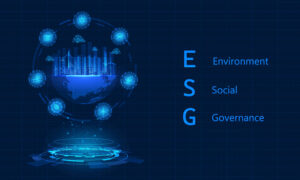
Improving Corporate Sustainability Through ESG Reporting Software
In the face of escalating climate change and mounting environmental degradation due to human activities, all of us must embrace more sustainable living practices. This ethos extends to the business realm, urging companies of all sizes to prioritize eco-friendliness as a paramount goal in order to mitigate the ongoing environmental damage.
From curtailing carbon footprints to optimizing resource management, the crux lies in formulating and attaining corporate sustainability objectives.
But how can organizations effectively achieve these goals? A promising avenue is to streamline the process using ESG reporting and the accompanying software tailored for its support. ESG, which stands for “environmental, social, and governance”, involves the disclosure of operational data pertaining to these three critical areas within a business.
The compilation and disclosure of this data serve as a blueprint for businesses, fostering transparency, responsibility, and sustainability. By encouraging companies to integrate ESG practices into their investment and organizational decision-making, this approach enhances ESG ratings, thereby facilitating compliance with benchmarks and regulations.
When executed adeptly, investments in robust ESG reporting contribute to an organization’s reduced environmental impact and improved societal contributions. Whether through the adoption of clean energy practices, cultivation of an inclusive workplace culture, or establishment of responsible supply chain management policies, pursuing these initiatives proves highly beneficial for businesses.
Moreover, elevated ESG ratings render a company more appealing to consumers and potential investors seeking socially responsible and sustainable investment opportunities. Numerous studies indicate a positive correlation, with around 90% highlighting the connection between ESG investing and financial performance.
High ESG ratings not only enhance reputation but also broaden market access, providing a competitive edge.
ESG reporting software plays a pivotal role in tracking, monitoring, and reporting performance. Leveraging technological advancements in real-time data aggregation and analysis, this software not only simplifies the assessment of environmental impact but also provides insights on effective action, thereby diminishing this impact.
For instance, environmental software facilitates energy monitoring in production and distribution, enabling more effective energy usage management, identification of areas for improvement, and implementation of energy-saving strategies.
Another notable capability of ESG reporting software lies in building energy management optimization. Outdated facilities can significantly increase carbon emissions and energy waste. ESG reporting software solutions enable the monitoring and management of lighting, HVAC, water usage, and more, ultimately improving the building’s energy consumption.
These advantages, offered by integrated ESG reporting software, empower companies to foster innovation, achieve sustainability objectives, and positively impact their financial bottom line.